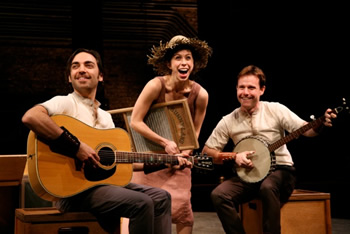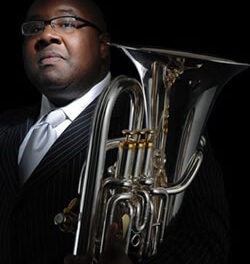JoAnn Falletta, Principal Guest Conductor of the Brevard Music Center, conducted the Verdi Messa da Requiem in a season finale concert that ended the 2017 Brevard Music Festival. Whittington-Pfohl Auditorium was filled close to capacity, and beautiful weather permitted people on the lawn (with a lower price admission) to fully enjoy a fine performance of the work that has been called “an opera in disguise.”
Was it the best Verdi Requiem that I ever heard? Probably not; I seem to recall David Zinman and the Rochester Philharmonic Orchestra in a stirring performance in the 1980’s. Zinman liked to combine the Rochester Oratorio Society (mature vocalists) with the chorus of Roberts Wesleyan University (youthful vocalists) for a mass choir of 150 with a powerful blended sound – not too old, not too young. BMC Chorus Master David Gresham achieved the same timbre by using a mix of BMC students with BMC faculty and adult volunteers from the surrounding community, but the chorus was 100 in size and not capable of the fortissimos that an even larger group can achieve without straining.
The tenor, Anthony Dean Griffey was not up to the high standards of the other three professional soloists: Jennifer Check, soprano; Ann McMahon Quintero, mezzo-soprano, and Ryan Speedo Green, bass. So, while the BMC Orchestra was close to letter perfect in instrumental passages, vocally this was an uneven performance.
The lengthy “Dies Irae” (Day of Wrath) is the heart of Verdi’s nontraditional and highly dramatic version of a requiem. This section begins with a pounding bass drum and the massed chorus, and then features eight trumpets (four on stage and four antiphonally from the lawn) in the “Tuba mirum.” The bass enters with the words “Mors stupebit et natura” (Death and nature shall stand amazed). Green delivered the words in the commanding tone of an operatic bass singing heavy Verdi roles. He impressed again with the “Confutatis maledictis” (When the doomed are silenced) near the end of the emotionally draining “Dies Irae.”
Verdi never really intended this as a liturgical piece. The work relies heavily on two female soloists while in his time women were not permitted to sing in Roman Catholic churches without explicit relief from the normal rules. Then again Verdi was not a religious person, but a composer with a highly developed sense of how to use the human voice – in all ranges. Check and Quintero provided dramatic contrast to the bass in the “Dies Irae” when they delivered the intimate “Recordare,” pleading for mercy. Griffey disappointed in the “Ingemisco” that immediately followed.
Maestra Falletta retained control of the large musical forces through most of the piece, although the bass and the orchestra did get out of sync at one point in the “Confutatis Maledictis.” But you couldn’t have asked for a cleaner cutoff at the end of the “Tuba mirum,” and Falletta’s expressive fingers were often in action giving detailed cues to sections of the orchestra.
After the quiet Offertorio comes a jubilant Sanctus that reminds me of the Grand March from Aida, yet another firmly operatic element in this requiem. When the brass sounded from the stage, several members of the audience seated near me looked left to where the antiphonal trumpets had been, apparently expecting something similar to the “Tuba mirum.”
Check sang throughout without a score, and had been eminently satisfying. Then came the “Libera me” (Deliver me from death) in which the soprano is featured. In this section, Check was not just satisfying, she was incredible. She played her role of a supplicant with dignity and grace, with modest arm and hand movements that conveyed an attitude of prayer, a smile that showed joy and a serious face when the chorus broke in with a reminder of the Day of Reckoning. And her singing in this final section showed complete mastery of Verdi’s intent. After all the fireworks, the requiem ends with a humble plea for deliverance.
Curtain calls were taken by the four soloists, the chorus master, the rehearsal pianist and Falletta, who invited concertmaster David Kim to join her in the lineup, acknowledging the orchestra which had played so well in this stirring concert.












